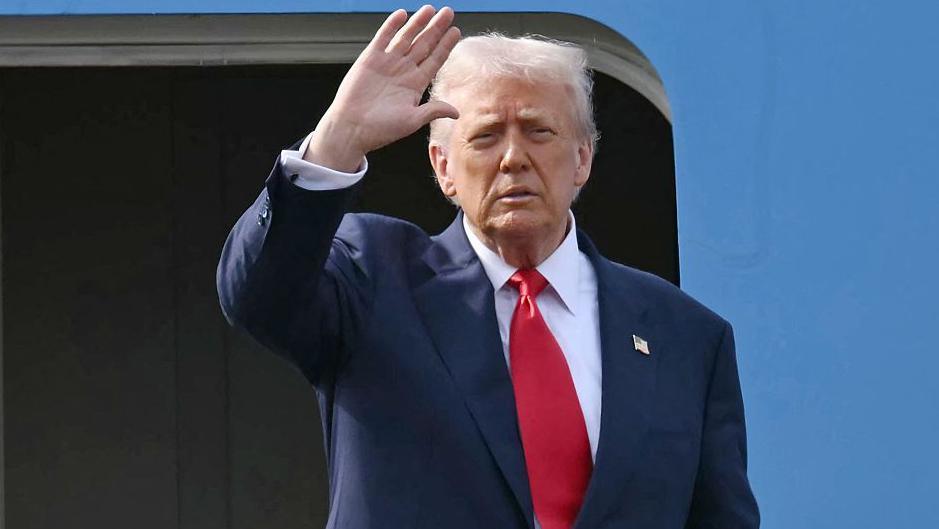Top Republican rebuffs Trump calls to axe filibuster rule in shutdown standoff

- Published
The top Republican in the US Senate has pushed back on Donald Trump's call to scrap the chamber's filibuster rule in a bid to end the ongoing government shutdown, now entering its 30th day.
The filibuster is a long-standing rule requiring 60 of the 100 members to approve most legislation. With a 53-47 majority, removing the rule would allow Republicans to pass a funding bill without Democratic support.
“It is now time for the Republicans to play their ‘TRUMP CARD,’ and go for what is called the Nuclear Option - Get rid of the Filibuster, and get rid of it, NOW,” Trump wrote on social media.
A spokesman for Senate Majority Leader John Thune said his opposition to doing that remains "unchanged".
The shutdown, which began on 1 October, has left millions of Americans facing the loss of essential services.
If it continues into the weekend, more than 40 million people could have lost access to the Supplemental Nutrition Assistance Program (Snap), which provides food aid to low-income households,
On Friday, however, a federal judge in Rhode Island blocked the Trump administration from halting that food aid, arguing that doing so would likely be unlawful.
Thousands of federal workers have already missed pay cheques, and there are growing fears of increased flight delays as air traffic controllers and airport staff work without pay.
Thune has previously rejected calls to change the filibuster rule to end the shutdown.
"Leader Thune's position on the importance of the legislative filibuster is unchanged," Ryan Wrasse, Thune's communications director, said in a statement to CBS News, the BBC's US partner.
Lawmakers from both political parties have long expressed concerns that scrapping it would erode a key safeguard for the minority party.
“Well, now WE are in power, and if we did what we should be doing, it would IMMEDIATELY end this ridiculous, Country destroying ‘SHUT DOWN,’” Trump wrote in a social media post late on Thursday evening.
By Friday, most senators had left Washington for the weekend, with little sign of progress towards reopening the government.
It remains unclear whether there is enough support within the Senate to invoke what is known as the "nuclear option" and eliminate the filibuster.
In recent years, both parties have chipped away at filibuster's reach.
During former President Joe Biden’s administration, some Democrats suggested ending the filibuster to enshrine abortion access and protect voting rights, but it did not get sufficient support within the party.
The senate has already made exceptions so that some nominees, including judicial appointments, only need a simple majority vote for confirmation. But most legislation remains subject to the 60-vote threshold.
Many Republicans fear that ending the filibuster could backfire if Democrats regain control of Congress.
The shutdown went into effect on 1 October after Democrats refused to support a stopgap measure to keep the government open until mid-November, unless Republicans agreed to extend healthcare subsidies for low-income Americans.
Republicans have resisted, accusing Democrats of holding the government hostage over unrelated policy priorities.
Related topics
- Published31 October


